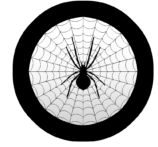Two female cultural activists in the Philippines strive to revive the endangered and ancient tattoo tradition of the country’s Cordillera region.
Ammin, 21, a tattooist and Wilma, 39, a traditional guru, respectively from Kalinga and Benguet, both provinces of the Cordillera region, are advocates of the ancient tattoo tradition.

They attended the 18th edition of the Dutduatan (Philippines’ biggest and grandest annual tattoo festival) to raise awareness about the disappearance of the culture and tradition of the cordillera people. I sat with both of them at the Dutduatan to understand their struggle and motivation.
”Those who wear tattoos were labeled with many prejudices’’, said Ammin.
The book of Leviticus in the Bible prohibit tattoo.
Leviticus 19: 28, says” you must not put tattoo marking upon yourselves’’.
Wilma said ‘’ as guardians of this great ancestral tattoo tradition, our mission is to get our people to proudly reclaim their ancestral tattoo tradition, preserve and pass it down to the next generation and destroy prejudices attached to it by educating society on our ancestral tattoo tradition, knowledge and spirituality ‘’
Ammin has been a tattooist for the past few years, however she does not consider herself as a Tattoo artist.
‘’Before being an art, tattoo is first and foremost the culture, history and identity of our people the Kalinga, transmitted from one generation to another’’, said Ammin.
Instead of tattoo artist, Ammin rather prefer to be called ‘Mangwhawhato’, a name for tattooist in Kalinga, and who are always females in accordance with tradition.

Kalinga is also the land of Whang Od Oggay, a 102 years old Mangwhawhato, Philippines oldest tattooist and living legend.
Instead of using modern equipment, Mangwhawhatos in the cordillera regions like Ammin, still use traditional materials such as lemon thorns, soup of the burnt pine tree and ashes to make their tattoos.
Wilma said ‘’ our tattoo techniques cannot be influenced by modernity and will remain traditional as it was passed down to us by our ancestors. Just the same way as religious scriptures are passed down from one generation to another and maintain regardless of time and space’’.
‘’ Tattoo is not just mere ink on the skin. It is part of the tradition of the indigenous people of the Cordillera region and when we talk about tradition, we talk about spirituality and ancestors’’, she added.
However, Amin and Wilma agreed that, traditional tattoo has both advantages and disadvantages. They said, the good side is that, the ink they use is organic so there is no risk of skin cancer. The inconvenient is that, due to the organic nature of their ink which comes directly from plants, they can only produce a unique ink’s color for their tattoos and which is black. However, they are experimenting different plants for the production of multi colors inks.
They also said that, according to the tradition of the indigenous tribes of the cordillera region, for men to have tattoos, they must have won tribal wars and other kinds of battles thus tattoo is a reward and symbol of strength and power for warriors. And for women, tattoos symbolize beauty, healing, wealth, and fertility. The most popular tattoo designs are that of snake and ladder which respectively symbolize protection and progress in their spirituality.

Aside from attending tattoo festivals and events, Ammin and Wilma run a coffee shop called ‘Great culture, Good People: Igorot Charm Cafe’ located in Baguio City, a touristic city in the Philippines and where they promote the culture of the cordillera people.

They strongly believe that, regardless of our cultural background, ethnicity, nationality and religion, we all belong to one same family which is human family. The cuisine of Igorot Charm cafe is a reflection of the oneness of humanity that is why it is a mix of local traditional delicacies with delicacies from other cultures, thus at Igorot Charm Cafe, we are at home while being abroad.
The Igorot Charm cafe is not only a cultural platform for the cordillera people but also a platform for cultural exchanges to promote diversity, peace and tolerance through the understanding of different cultures of the human family.
They strongly believe that, no culture needs to genocide another to exist and that the understanding of different cultures is the solution for world peace.
MASSOCKI MA MASSOCKI
